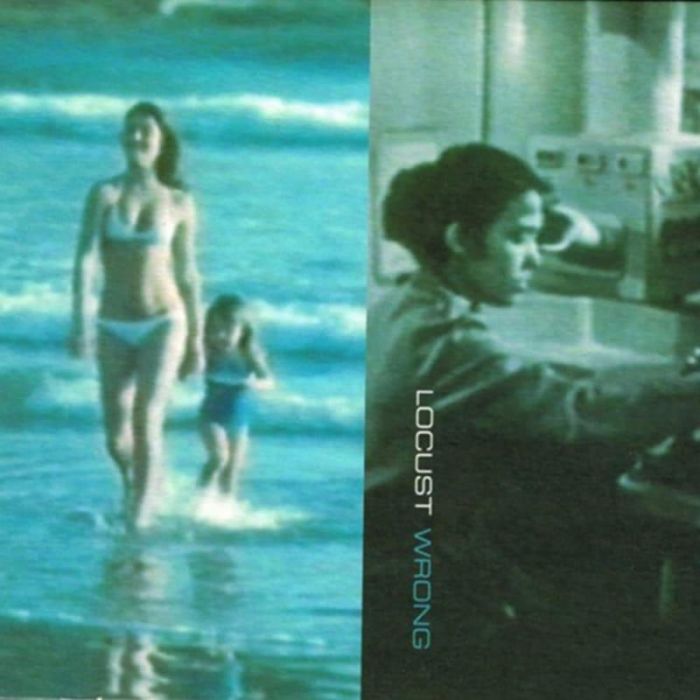Wrong by Locust (Review)

Let’s clear one thing up right now. This is not the latest from The Locust, a mistake my friends always seem to make. This the latest from Locust, aka Mark Van Hoen, and you’ll find nary a preposterously-titled 30 second blast of ear-grating noise and B movie references on either one the album’s two discs. You may not have heard Van Hoen’s name before, but it’s not for lack of output. Not only has he released several albums under both the Locust moniker and his own name, he’s also lent his talents to the likes of Seefeel, Scala, Aurobindo, and Mojave 3.
However, Van Hoen’s own music has always carved a unique swath when compared to some of the artists he’s worked with. Van Hoen’s early works, such as Weathered Well and Truth Is Born Of Arguments, were chilling slabs of electronica that could have been hewed out of icebergs. Not really techno and not really ambient, his early albums existed somewhere in-between. His disturbing soundscapes made Selected Ambient Works, Volume II sound positively warm and fluffy while his beats left bruises in their wake. The dark, single-minded approach didn’t exactly make for the most inviting material — I find it challenging to make it even halfway through Weathered Well — but it remains captivating in small doses.
However, that all changed with the release of 1997’s Morning Light. Locust’s mood lightened considerably, to the point where it didn’t even sound like the same band anymore. Van Hoen adopted an almost trip-hop approach, while also adding touches of jazz and folk. While perhaps not as challenging as his previous works (and certainly not up to the “Massive Attack meets This Mortal Coil” descriptions) Morning Light was a much more accessible and enjoyable album as a whole.
Which brings us to Wrong, Van Hoen’s first proper release in quite some time, and one that finds him attempting to bridge the gap between the extremes of Weathered Well and Morning Light. The more song-oriented approach is still in effect. The seductive female vocals are there as well, courtesy of Holli Ashton, Lisa Millet, Sarah Peacock (Seefeel, Scala), and Tara Patterson. However, the instrumentation hearkens back to Van Hoen’s earlier days, consisting of icy analog synths and nothing else.
The first album opens up on daydreamy note with the aptly titled “Heal.” Van Hoen’s synths shimmer, whirl, and coo, as Ashton’s vocals sigh with the best of them. Imagine Saint Etienne’s slower material with a bit more of an edge, and you’re on the right track. Even with the song’s hazy sound, the analog nature of the sounds gives it rough feel, something that becomes more apparent with each song.
Most people think that analog sounds are warm, comforting, and softer. Obviously, those people haven’t listened to Van Hoen’s work, such as “Believe In The One.” This track, with its piercing, alien tones and distorted beats, bears the closest resemblance to his earlier material; it almost feels like a Weathered Well remix. Even the female vocals are twisted and affected, giving them a brittle sound. “Sweet Sky” continues this approach, concocting yet another dense blend of synths and rhythms.
The album does lighten up on tracks like “Separate” and “Wrong,” especially with the latter’s sighing vocals and softer, ambient touches. However, there’s no missing where the album is heading as it nears the end. By the time “Haze” drifts over the speakers, the cold analog textures have completely taken over. Ashton sounds like a ghost in the machine, her voice chopped up and echoing like a distress call on the verge of breaking up, held together by the barest of signals (try listening to it on headphones for an interesting effect).
My guess is that Van Hoen wanted to take a more experimental route with this CD, without sacrificing the accessibility that he toyed with on Morning Light. And to some degree, he succeeded. It is certainly far more accessible than Truth Is Born Of Arguments, but also a bit more challenging and intriguing than Morning Light.
And let’s not forget the second disc, which contains 9 instrumental tracks that roughly correspond to those on the first disc. The theory is that you play the two discs at the same time, and the second disc fills in the first’s spaces. While not original, it’s an intriguing concept. If you can pull it off (I did it with my stereo and computer), you’ll find the two discs do make an interesting complement. But it’s nothing terribly mind-blowing, mainly because the second disc consists of rather bland ambient pieces. Played by itself, it’s the epitome of aural wallpaper.
I’ve always been intrigued with Van Hoen’s music, though I rarely find it as satisfying as I’d like to (especially in his earlier works). While the concepts behind “Touch” are probably not as forward-thinking as Van Hoen would perhaps like them to be, and analog devotion is nothing new (Ronnie Martin is the guy to beat in that department), I have to say that “Trust” has worked its way up my listening rotation lately. However, I’d recommend looking for it domestically, rather than shell out for the import price. You’ll feel like you got more for your money that way.